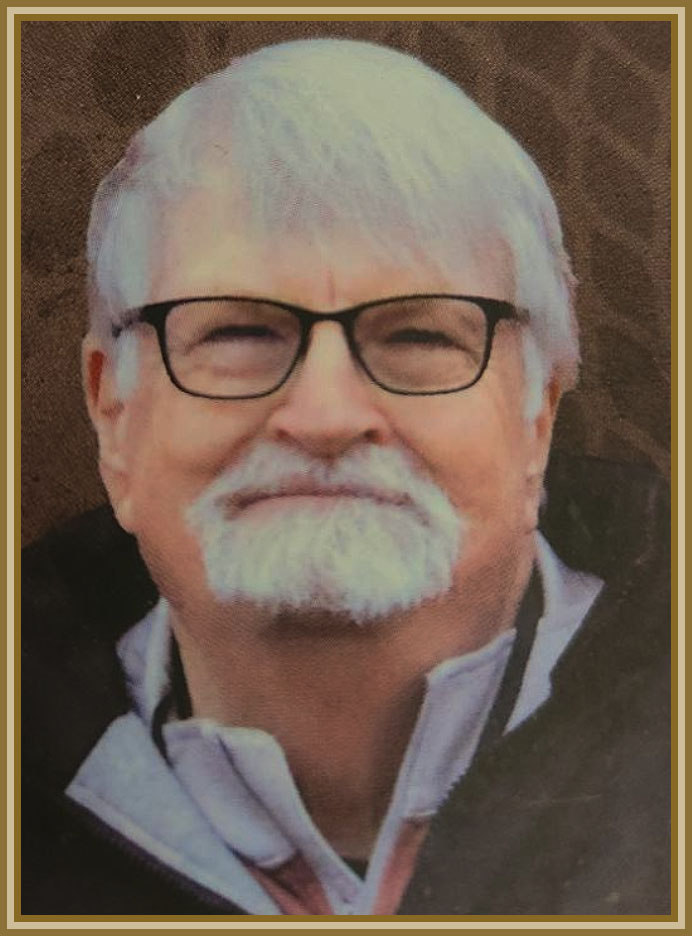
Apologies for revisiting an issue that has been addressed here twice; however, the significant impact of the Netherlands proposed capacity limits on its hub airport on international aviation needs to be highlighted. The Double Dutch irony here is shown here
1. The action could turn AMS into an aircraft graveyard, a possible fulfillment of its etymological origin-

2. The country traces its financial success to having established one of the globe’s first international hubs of commerce. By the end of the 18th century, the Netherlands was a major market for sovereign debt and a major source of foreign direct investment. This ban could restrict its access to the flow that brought them world stature.
Time is the driver for this drastic change, as the below article makes clear. The current Dutch Government has “collapsed” (fn. 1). The system of air freedoms is seven decades old. Denying/limiting foreign flights may be prohibited by the Chicago Convention and certainly contravenes its intention. A prior post expanded on this abuse of this international system:
“It appears that the Netherlands is experiencing cognitive dissonance on several levels; they include:
- Kingdom of the Netherlands was an original signatory to the Chicago Convention on on December 7, 1944, along with 51 other states .
- In reliance on that Treaty, the Dutch Government has initiated legal proceedings before the International Civil Aviation Organization (ICAO) against the Russian Federation for its role in the downing of flight MH1.
- The Kingdom has been a participant in ICAO’s Carbon Offsetting and Reduction Scheme for International Aviation (CORSIA)1 from the start of its voluntary phase on 1 January 2021.
- Yet the same sovereign’s **refusal to publish documents about a controversial CO2 standard for aircraft **is being challenged in cour.t For unspecified reasons, the Kingdom has withheld decisions and research about the CO2 standard, emission trends, biofuels and offset rules – all of which were drafted or developed behind closed doors at UN aviation agency ICAO – the Netherlands is in breach of EU law.
- Part of the ICAO CORSIA program is the adoption by participating Members in the UN Organization’s Balanced Approach to Aircraft Noise Management2 .
- the Dutch government attempted to order Amsterdam’s Schiphol Airport, one of Europe’s busiest aviation hubs, to reduce the number of flights from 500,000 per year to 460,000. The decision by a judge in Haarlem found that the Netherlands** failed to follow the Balanced Approach as required by the country’s obligations under ICAO’s agreement. The Balanced Approach has also been endorsed by the EU.**
The process adopted by the UN Aviation organization is** not onerous** and it is designed to assess multiple alternatives to the most EFFECTIVE noise reduction. An AMS Balanced Approach hypothetically might find that the reduction in flights might not deliver the system benefits assumed by the Dutch proprietor. Such as, the noise contours do not significantly reduce; the net benefit is not as expected. Or the demand blocked by the reduction cause a significant number of passengers to use airports in France or Germany.
Without a vetted economical/operational impact study, the limitations may cause carriers to move flights away from Schiphol and that iterative withdrawal may end the airport’s role as a hub or worse. THAT may be the real goal of the proponents. A Balanced Approach study would reveal the consequences on GNP and jobs.
AMS action would only benefit the airport’s environs, but there would be little to no benefit to Europe’s environment.** This parochial perspective is why ICAO ‘s members adopted CORSIA and The Balanced Approach: GLOBAL IMPACTS ARE ESSENTIAL TO A TRUE REDUCTION. **
In each of these examples** this country’s policy as to aviation appears to be bifurcated in its logic – supporting key ICAO principles while taking actions that contravene those international agreements.**
While the current government appears to be exiting the Hague, the issue may be moving 139 miles to the south and east, where EASA may determine whether the AMS restrictions violate the European Union laws.

According to the European Commission, an in-depth assessment is being conducted to evaluate the compatibility of Schiphol Airport’s capacity limits with EU laws. The Dutch government’s plan to impose a flight capacity limit at Amsterdam Airport Schiphol to reduce noise was ruled unlawful by a Netherlands court, as it does not comply with European rules. The European Commission is looking into the Schiphol situation and has stated that while it fully supports the intention to tackle important environmental and noise concerns, SUCH MEASURES MUST BE APPLIED IN ACCORDANCE WITH RELEVANT EU LAW.
Other “environmental remedies” have also been reviewed by and voided by the International Civil Aviation Organization.
The myopic Netherlands option will be scrutinized by these two organizations which have a broader perspective. The proposed AMS flight reduction does not, cannot, eviscerate the passenger demand. Traffic that used to originate or destinate at this Airport will find alternative European Airports in Germany, Belgium, or France to complete their journeys. The Schiphol limitation may protect its neighbors, but there is no likely zero-sum game for Europe.
PAROCHIAL NETHERLANDS is a drastic aberration from its macro centric history. Bing AI generated
At Schiphol, Airlines’ Worst Fears Are Getting Real
Helen Massy-Beresford September 18, 2023

Fewer slots will be available at Schiphol, one of Europe’s busiest airports.
Credit: Amsterdam Airport Schiphol
Airlines operating out of Amsterdam Airport Schiphol are GOING TO HAVE TO COPE WITH ABOUT 4% FEWER SLOTS AVAILABLE NEXT SUMMER—unwelcome news for their short-term planning that also highlights the longer-term effect operational restrictions can have on their business models.
The slot reduction comes as the Dutch government1 seeks to move ahead with its controversial plan to reduce noise at Schiphol by limiting flight capacity.
- Approximately 4% fewer Schiphol slots will be available in the summer of 2024
- IATA says slot reduction confirms airlines’ worst fears
- European Commission is looking into the Schiphol situation
Conrad Clifford, deputy director general of the International Air Transport Association (IATA), said in a statement the news that fewer slots would be available next summer “CONFIRMS OUR WORST FEARS OF THE EFFECTS OF THE ENFORCED CUT TO FLIGHT NUMBERS AT THE AIRPORT. “This is where the government’s ill-thought-out plans hit reality: fewer destinations, and less choice, resulting in fewer travelers, lost employment and reduced investment coming into the Netherlands,” he added.
KLM Royal Dutch Airlines, whose hub is at the airport, has previously warned that any move to limit flight numbers at Schiphol would harm its network, which counts close to 170 direct destinations from Schiphol.
The plan the Netherlands has submitted to the European Commission foresees a REDUCTION IN OPERATIONS AT SCHIPHOL TO 460,000 MOVEMENTS AS OF MARCH 2024, DOWN FROM 500,000, THROUGH AN “EXPERIMENTAL REGULATION.” Last year, the Netherlands set out plans to limit capacity at Schiphol in a bid to reduce noise from the airport. Unsurprisingly, airlines objected and grouped together to launch a legal challenge. And in the case of KLM, the airline presented its own plan to reduce noise without resorting to capacity cuts.

Royal Schiphol Group, the airport’s operator, added its voice to the mix when it set out its own plan to reduce noise, including CONTROVERSIAL STEPS SUCH AS BANNING PRIVATE JETS AND INTRODUCING A NIGHT CURFEW. While a Dutch court agreed with airlines earlier this year that the plans were unlawful, the government appealed, eventually winning its case with a higher court ruling the plans could go ahead. Airlines are now awaiting the hearing of a further appeal, and the EUROPEAN COMMISSION IS CARRYING OUT AN IN-DEPTH ASSESSMENT OF THE COMPATIBILITY OF THE DUTCH MEASURES WITH EU LAWS. “While the Commission fully supports the intention to tackle important environmental and noise concerns, such measures must be applied in accordance with relevant EU law,” a spokesperson says.
The law in question is the balanced approach procedure, which member states must follow when seeking to reduce noise at an airport. The law sets out steps to take before resorting to operational restrictions. “Meanwhile, our appeal to the cassation court remains to be heard,” Clifford said. “We hope the court decides swiftly on the legality of the ‘experimental regulation’ that is causing this mess,” he added, referring to the plan to limit flights to 460,000 from March. Whatever the outcome of that legal case and European investigation, ACNL—the Netherlands’ slot coordinator—has confirmed fewer slots will be available for airlines operating out of Schiphol in the summer of 2024. “According to the draft capacity declaration of Amsterdam Airport Schiphol, the seasonal limit for Northern Summer 2024 will be set on 280,645 slots,” an ACNL spokesperson told Aviation Week.
That represents a reduction of approximately 4% compared with last summer—although ACNL noted that the summer 2024 period lasts one week less than the summer of 2023.
Airlines must submit their initial requests by Oct. 5, and ACNL will publish initial allocation results for the summer of 2024 on Nov. 2, it said, at which point it will be clearer which routes are affected by the reduction. “ACNL applies in initial allocation the principle of proportionality. All airlines will be affected in the same order,” the ACNL said.
This news comes as aviation and its effect on the environment are in the spotlight for another reason. The European Parliament recently voted to adopt the ReFuelEU legislation, setting out sustainable aviation fuel (SAF) mandates in a bid to encourage production of the alternative fuels that are seen as the most realistic short-term way to decarbonize aviation.
While airlines have welcomed the adoption of ReFuelEU, the Schiphol situation highlights the reality. Alongside legislation they see as supporting their own efforts to decarbonize—many airlines are already targeting proportions of SAF that go far beyond the requirements—they are also likely to face environmental and noise restrictions that will hurt their short-term operations.
IATA’s Clifford said developments at Schiphol could NOT BE ALLOWED TO BE “HELAAS, PINDAKAAS,” a colloquial Dutch expression meaning “too bad,” as he urged the European Commission to act. “This is surely the wake-up call other governments need to remind the Dutch of their responsibilities under international law and bilateral air service agreements.

“Too much is at stake,” he added. “Jobs today and the prosperity of the Netherlands in the future will be damaged by this decision. This caretaker Dutch government, lacking any democratic mandate, is setting fire to its own shop.”

KLM Royal Dutch Airlines CEO MARJAN RINTEL “AS AN OUTGOING MINISTER, YOU DON’T MIND THE SHOP BY CLOSING IT!” used the same analogy Sept. 1 when she spoke out about the planned flight cap. Mark Harbers, infrastructure and water management minister, she said, referring to Mark Harbers, infrastructure and water management minister, who first presented the plan.
Rintel said the airline’s own plan to reduce noise and emissions and boost efficiency showed that it could achieve the noise reduction targets while maintaining the current number of flight movements, maintaining the connection between the Netherlands as a trading nation and the rest of the world.

Based in Paris, Helen Massy-Beresford covers European and Middle Eastern airlines, the European Commission’s air transport policy and the air cargo industry for Aviation Week & Space Technology and Aviation Daily.






